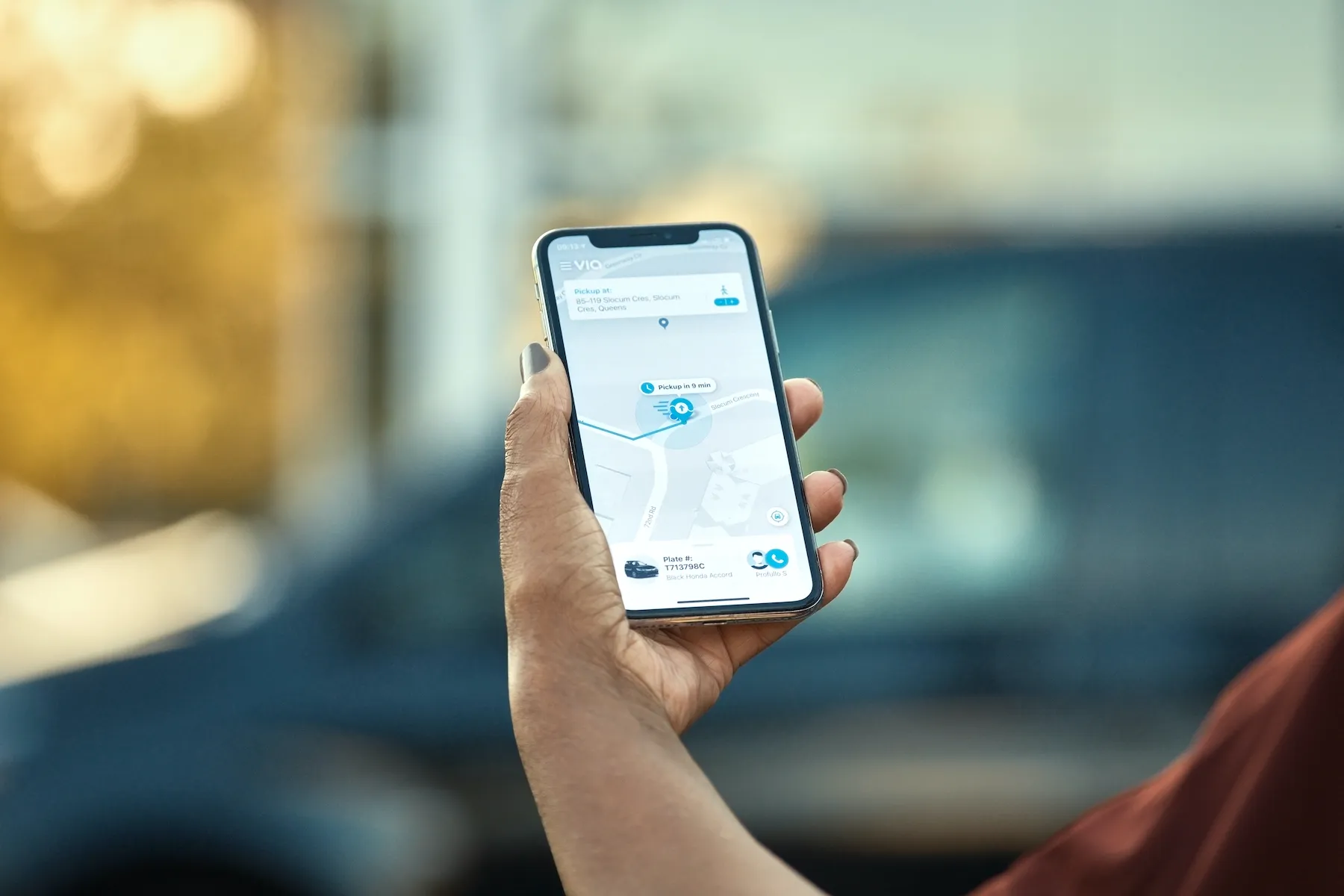An innovative solution for managing traffic queues at international borders is the winner of the 2015 Transport Achievement Award offered by the International Transport Forum at the OECD. The Award recognises demonstrated achievement of excellence in transport provision that has improved, enabled or facilitated tourism.
The GoSwift queue management service, an Estonian public-private partnership, allows pre-booking of time slots and virtual queuing for border crossings via the web, a call centre or self-
May 19, 2015
Read time: 3 mins
An innovative solution for managing traffic queues at international borders is the winner of the 2015 Transport Achievement Award offered by the 998 International Transport Forum at the 7353 OECD. The Award recognises demonstrated achievement of excellence in transport provision that has improved, enabled or facilitated tourism.
The GoSwift queue management service, an Estonian public-private partnership, allows pre-booking of time slots and virtual queuing for border crossings via the web, a call centre or self-service terminals. Better use of the capacity of border crossing points and more efficient journey planning for trucks and tourists are just two of the immediate benefits.
The service was developed as a response to kilometre-long queues of vehicles waiting to cross the EU border from Estonia into Russia. Prior to the introduction of GoSwift, waiting times could reach five to six days at peak times. With the queue management service, they are now down to around 30 minutes.
Drivers are informed in real-time on the number of vehicles waiting at the border, enabling them to adapt their journey. Designated waiting areas provide secure parking, as well as restaurants, toilets, showers and free wi-fi.
The mandatory pre-booking has also cut out illicit trade and eliminated the thriving black market for border crossing slots. The disappearance of truck queues has improved local traffic flows and road safety. The environment has benefitted both locally in terms of less waste, reduced noise and fewer exhaust fumes, as well as globally through less CO2 emissions from idling vehicles.
Trade and tourism statistics show increased activity across the border. Between 2010 and 2013, exports from Estonia to Russia grew by more than 66 per cent, and the number of Russian visitors to Estonia increased by 35% in 2013. The Estonian Association of International Road Transport Carriers estimates that Estonian carrier companies have been able to save four million euros annually thanks to the GoSwift service.
Following the success of the Estonian project, the same queuing service has been implemented at five Lithuanian border crossing points and at one Finnish border point on crossings to Russia and Belarus.
In awarding GoSwift the ITF Transport Achievement Award 2015, the jury noted the “excellent approach to facilitate border crossing” and applauded the positive impact the GoSwift project has on improving conditions for locals and drivers at the border as well as the wider economic benefits for tourism and trade between Estonia and Russia.
The GoSwift queue management service, an Estonian public-private partnership, allows pre-booking of time slots and virtual queuing for border crossings via the web, a call centre or self-service terminals. Better use of the capacity of border crossing points and more efficient journey planning for trucks and tourists are just two of the immediate benefits.
The service was developed as a response to kilometre-long queues of vehicles waiting to cross the EU border from Estonia into Russia. Prior to the introduction of GoSwift, waiting times could reach five to six days at peak times. With the queue management service, they are now down to around 30 minutes.
Drivers are informed in real-time on the number of vehicles waiting at the border, enabling them to adapt their journey. Designated waiting areas provide secure parking, as well as restaurants, toilets, showers and free wi-fi.
The mandatory pre-booking has also cut out illicit trade and eliminated the thriving black market for border crossing slots. The disappearance of truck queues has improved local traffic flows and road safety. The environment has benefitted both locally in terms of less waste, reduced noise and fewer exhaust fumes, as well as globally through less CO2 emissions from idling vehicles.
Trade and tourism statistics show increased activity across the border. Between 2010 and 2013, exports from Estonia to Russia grew by more than 66 per cent, and the number of Russian visitors to Estonia increased by 35% in 2013. The Estonian Association of International Road Transport Carriers estimates that Estonian carrier companies have been able to save four million euros annually thanks to the GoSwift service.
Following the success of the Estonian project, the same queuing service has been implemented at five Lithuanian border crossing points and at one Finnish border point on crossings to Russia and Belarus.
In awarding GoSwift the ITF Transport Achievement Award 2015, the jury noted the “excellent approach to facilitate border crossing” and applauded the positive impact the GoSwift project has on improving conditions for locals and drivers at the border as well as the wider economic benefits for tourism and trade between Estonia and Russia.









